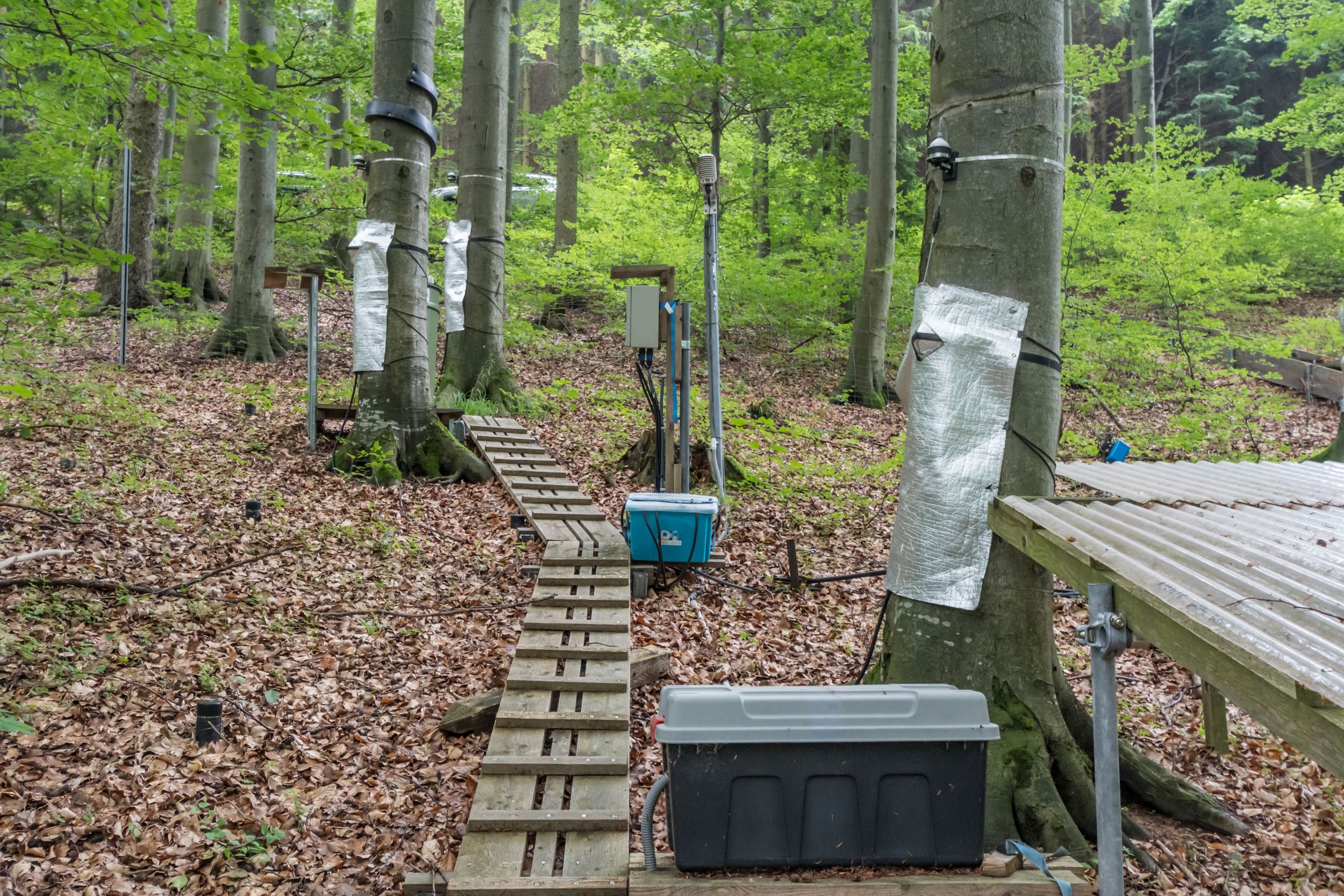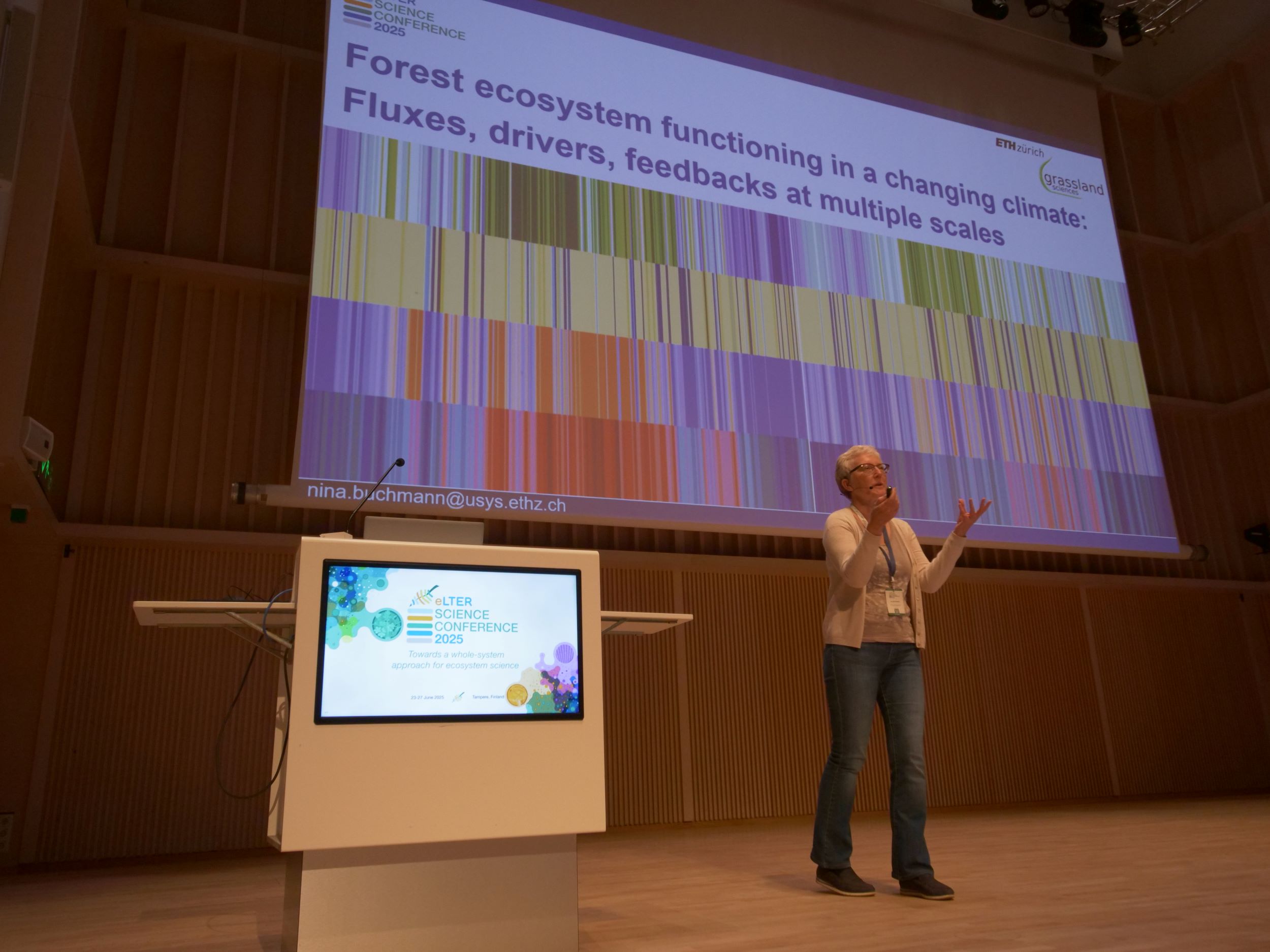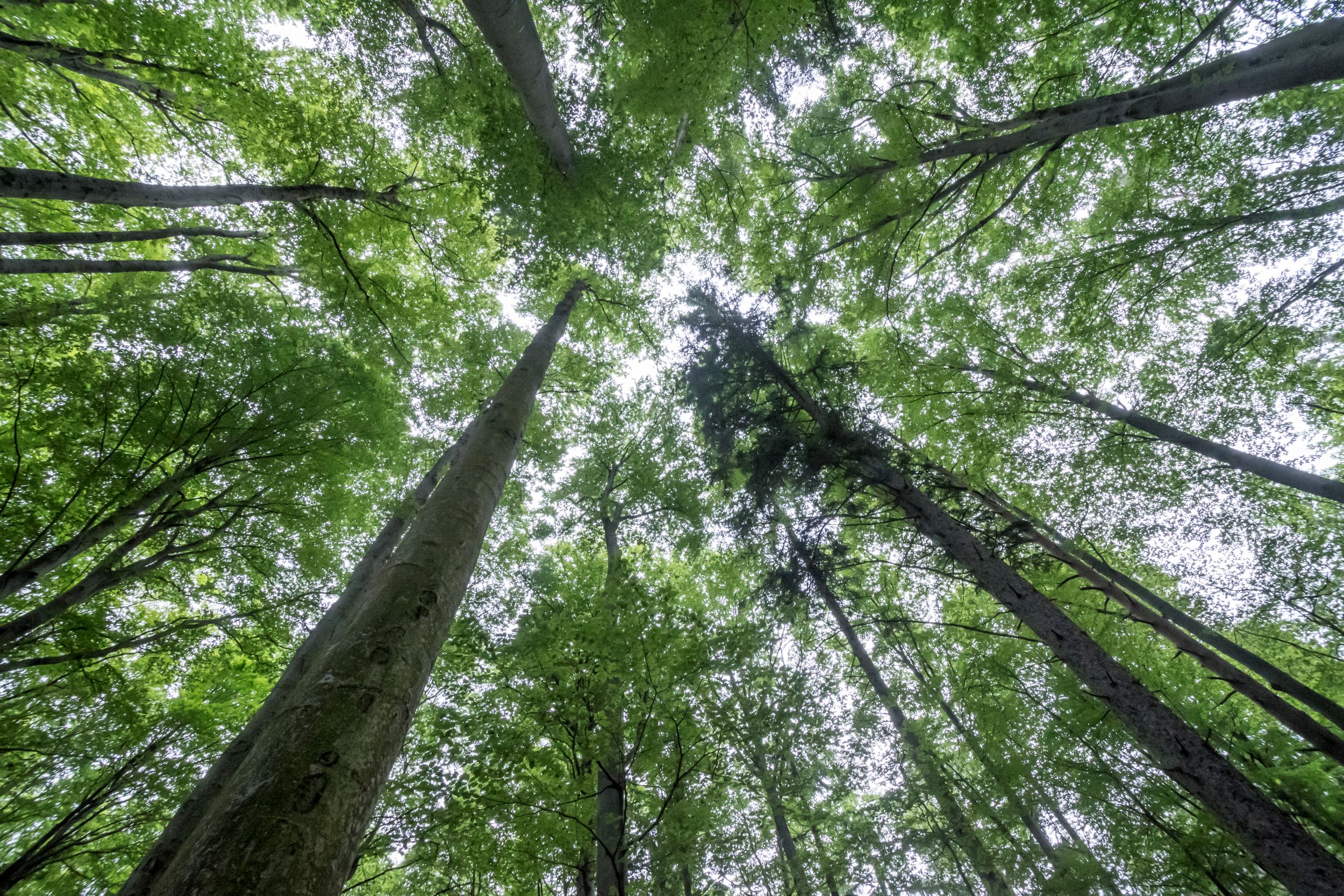Prof. Dr. Nina Buchmann: All Elements of the forest ecosystem are important and they can surprise you
Nina Buchmann is a professor at ETH Zürich, specializing in plant ecology and ecosystem research. Her work focuses on the interactions between vegetation and the climate, particularly in understanding how different land use practices influence carbon and nutrient cycles. Buchmann employs innovative experimental approaches to study plant responses to environmental changes and their role in ecosystem services. Her research is instrumental in informing sustainable land management and climate adaptation strategies. With numerous publications in leading scientific journals, she is recognized for her contributions to advancing our understanding of plant-environment interactions in a changing world.
Nina Buchmann was among the keynote speakers at the first eLTER Science Conference (23-27 June 2025, Tampere, Finland), and while being there, we invited her for an interview.
Prof. Buchmann, what do you like most about the first eLTER Science Conference?
I really enjoy attending the eLTER conference because it's great to meet people who work on similar topics, face similar problems, and share similar interests. But also meeting old colleagues - some of us have known each other for 30 years already, and then they bring their PhD students, their postdocs. So, it feels like a big family!
What is the significance of the whole-system approach that eLTER is introducing?
The systems approach is very important. If you only look at one part of a system, such as a forest, you may miss key elements. For example, focusing only on soils means you miss the trees. Looking only at understory vegetation may cause you to overlook migrating animals.
If we look at the whole system, as eLTER does, we see lakes, terrestrial ecosystems, the atmosphere, and human interactions together. We call this ‘System Earth’, and it must be seen as a complete unit. It's similar to children's games: change one small part, and the effect shows up elsewhere. The systems approach helps us observe these unexpected responses.

Any advice you have for early-careers in that sense?
Working on a systems approach starts with defining your system. Is it soil, a forest ecosystem, a whole landscape, or a city? For early-career researchers, I recommend starting with a smaller system. Do not jump immediately into natural sciences, social sciences, and the economy at once. First, gain expertise in one area, then expand steadily beyond your field. The scientific community evaluates you for knowledge in one discipline.
And already, for example, if you look at the soil systems you work on, they include soil chemistry, soil physics, microbial, and biogeochemistry. It is already kind of interdisciplinary.
Why are research infrastructures important?
I think these big joint infrastructures, be it eLTER, ICOS, ACTRIS, or some of these other European research infrastructures, have a very important role to play, not only bringing science together across disciplines for a longer time but also to inform policymakers. And since they also have a head office, they have a communications team. We can also provide information for schoolchildren, for example, or kindergarten children. We can really go and do very good outreach because we have the experts in these projects. And we can reach society. Can we say that with these research infrastructures, we will change society in the next five years? I'm doubtful. Because we know how slow changes are in a society.
You are also constantly engaged in science communication. How would you motivate researchers who prefer not to be in the spotlight, to step outside of their comfort zone?
Science communication is really key if we want to have an impact as scientists. I fully see that not everybody can become a big communicator and stand in front of schoolchildren, or in Switzerland, we have the universities for retired people, and tell the grandmas and grandpas what is going on. Or stand on the street and say things. But many people have different skills. Some would be better at writing a script, then somebody else can actually be the communicator, and somebody else might be great at drawing or doing video, or creating wonderful art that people relate to. It does not need to be the “one-on-one” outreach all the time that typically we think about.
Why is essential that eLTER's physical network consists of more than 250 Sites and Platforms?
These large research infrastructures, like eLTER and ICOS, for example, work with these very long-term and highly instrumented sites, forests, lakes, and atmospheric towers. They are very, very important because many of the changes that we see are minute from month to month, from year to year. But if you then have a 5, 10, maybe 30-year time series, then you can see trends, and you can ask about drivers. So, it's very important that these “super sites” actually exist and that they are also well funded, which is sometimes a problem because some of the funders want to have a new site each three years, but then it will not work because you would need to describe your site start over and over again. We don't do that. It's like architecture. You should always keep the core of your house. Yes, you can build a nice winter garden or a swimming pool or a next floor, but the foundation that must be there - these are the core sites, which are kind of the spine of any of these big infrastructures.
What did the forest teach you, personally?
I think the biggest lesson that I learned from forest ecosystems is that all components of the system, all compartments, are relevant and important. I cannot be a forest if I don't have soil. I cannot be an old tree if I have not been a seedling or a sapling before. But I also need the soil microbes in the soil to provide me with nutrients. I need the atmosphere to bring CO2 for my photosynthesis, and water. And I think these interdependencies and complexities that are frightening at the beginning, as a PhD student, but over time you will understand how things are working, that they are surprises. And I think to also stay open for those surprises when I do my research - that's quite a lesson learned that I can also then use for my private life.
Your message to all young researchers out there?
I would like to encourage you to think about, do, and study natural sciences and help us to understand how Earth works, either by being in a forest or on a lake, but also, maybe if you're more interested in images, to go to remote sensing, or there are tons of statistical new methods out there. Dare to do what you want to do, what you are interested in, and then you will be good at it!
Read Nina Buchmann's research on Forest ecosystem functioning in a changing climate: Fluxes, drivers, feedbacks at multiple scales in the eLTER Science Conference 2025 proceedings
To stay updated on more interviews and stories we prepare, subscribe to the eLTER newsletter!

